The Ominous Implications of William Barr’s Testimony
More alarming than his lies about the Mueller report is the attorney general’s dramatically expansive defense of executive power.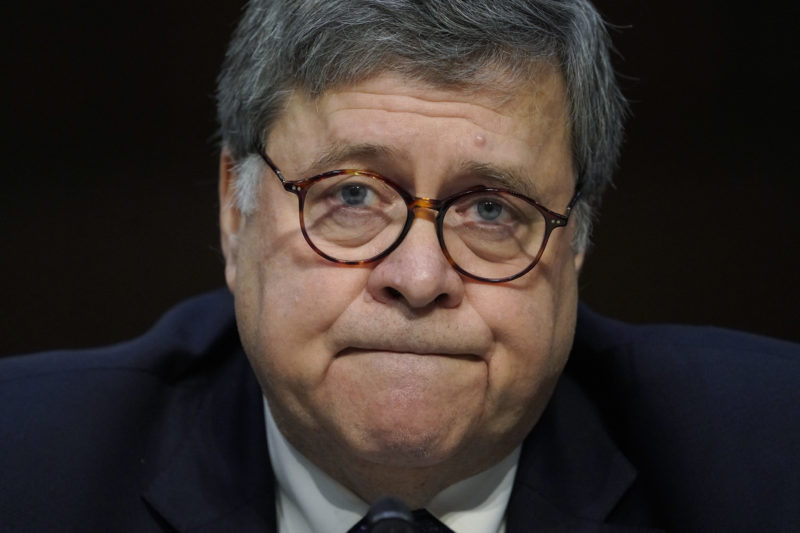 Carolyn Kaster / AP
Carolyn Kaster / AP
Editor’s note: This is the first in a two-part series examining Attorney General William Barr’s testimony on the extent of presidential power and the challenge his assertions and relationship with President Trump present to Congress.
The most shocking aspect of Attorney General William Barr’s May 1 testimony before the Senate Judiciary Committee wasn’t the bucket of lies he told about his disagreements with special counsel Robert Mueller over the “context, nature, and substance” of Mueller’s 448-page report on Russian intervention in the 2016 election.
More alarming than the lies and misrepresentations was Barr’s dramatically expansive defense of executive power. In response to a line of questions from Sen. Pat Leahy, D-Vt., about obstruction of justice related to Donald Trump’s firing of former FBI Director James Comey and his alleged threat to discharge Mueller, Barr said:
The point I was trying to make earlier is that, in the situation of the President, who has constitutional authority to supervise proceedings, if in fact a proceeding was not well founded, if it was a groundless proceeding, if it was based on false allegations, the President does not have to sit there, constitutionally, and allow it to run its course The President could terminate that proceeding… .
Though not explicitly mentioned, a concept of the presidency that constitutional scholars call “the theory of the unitary executive” is deeply embedded in the attorney general’s testimony. In a recent article, Politico White House correspondent Eliana Johnson asserted that it was the prospect of advancing this theory that drew Barr to Trump in the first place, rather than any personal fealty to the president.
The unitary executive theory has long been a favorite of the radical right. It has its roots, innocuously enough, in Article II, Section 1 of the Constitution, which provides: “The executive power shall be vested in a President of the United States of America.”
Hardline proponents of the unitary theory also frequently invoke Alexander Hamilton’s arguments in favor a strong chief executive, set forth in Federalist Paper No. 70, as proof that the Founding Fathers intended to endow the president with sweeping authority.
While the Constitution clearly establishes a single-person presidency as opposed to a committee, unitary extremists like Barr hold skewed and treacherous views of the Constitution. As professors Karl Manheim and Allan Ides of Loyola Law School, Los Angeles, observed in an oft-quoted 2006 academic paper:
In fact, the theory of the unitary executive is anything but an innocuous or unremarkable description of the presidency. In its stronger versions, it embraces and promotes a notion of consolidated presidential power that essentially isolates the Executive Branch from any type of congressional or judicial oversight. And it is much more than an academic theory. Rather it is an operative way of thinking about and applying Executive Branch power that has had and will continue to have real-world consequences for our republic and for the international community.
Although presidents from Washington onward have sought to expand their authority, the unitary theory was articulated as an explicit doctrine during the presidency of Ronald Reagan.
In a book-length policy analysis published in 1981, titled Mandate for Leadership, the Heritage Foundation urged Reagan to curb the independence of federal agencies and centralize policymaking in his hands. As counselor to the president and later as attorney general, Ed Meese also advised Reagan to use presidential signing statements to augment his power by adding his views to the official legislative histories of statutes passed by Congress. This, Meese reasoned, would ensure that the president’s views were given due weight by courts that might later be called upon to review the statutes.
Another early hardline proponent of the unitary theory was Supreme Court Justice Samuel Alito. In a 1986 memo written while he was a deputy attorney general in the Office of Legal Counsel (OLC), Alito suggested that signing statements should include the president’s interpretation of the constitutionality of federal laws. Alito further advised that such interpretations be followed by all executive departments and agencies.
Barr entered the unitary theory discourse in 1989, at the outset of the George H.W. Bush administration. Following his appointment as an assistant attorney general for the OLC, Barr penned a 10-page analysis aimed at combating what he claimed were “the ways Congress most often intrudes or attempts to intrude into the functions and responsibilities assigned by the Constitution to the executive branch.”
Barr was especially concerned with blunting attempts by Congress to regulate the president’s power to appoint and remove federal officers and employees at will, and to oversee the conduct of foreign affairs. Such legislative meddling, he contended, “unconstitutionally infringe[d] upon the unitary executive and must, therefore, be resisted.”
Two years later, Barr advised H.W. that he had the power to send U.S. military forces into Iraq without congressional authorization. Shortly thereafter, Barr was nominated to become the nation’s 77th attorney general, a position he held for the remainder of H.W.’s tenure.
Barr’s views on presidential power were echoed post-9/11 by another OLC attorney, John Yoo, now a professor at the University of California, Berkeley, School of Law. In a memo dated Sept. 25, 2001, Yoo contended that the president had broad constitutional power to take military action, even preemptively, in the “War on Terror,” and to do so with or without congressional approval. While at the OLC, Yoo went on to write opinions approving the use of “enhanced interrogation” techniques abroad in the “War on Terror” that would be considered torture if deployed in the United States.
In December 2017, Barr reportedly turned down an offer to join Trump’s legal team, but by the following June, he apparently sensed a need to come to Trump’s rescue in response to Mueller’s investigation of the president for possible obstruction of justice. In an unsolicited memo sent to the Justice Department, Barr called Mueller’s then-undisclosed views on obstruction “legally unsupportable” and “fatally misconceived,” offering a classic endorsement of the unitary theory:
The Constitution itself places no limit on the President’s authority to act on matters which concern him or his own conduct. On the contrary, the Constitution’s grant of law enforcement power to the President is plenary. Constitutionally, it is wrong to conceive of the President as simply the highest officer within the Executive branch hierarchy. He alone is the Executive branch. As such, he is the sole repository of all Executive powers conferred by the Constitution. [Emphases in the original.]
Widely regarded as a job application in disguise, the memo earned Barr his second nomination as attorney general. Nominated in December, he was confirmed by the Senate in February.
In Trump, Barr has found the perfect presidential vehicle for the unitary theory. This doesn’t mean, of course, that the president understands the theory, or has ever read a word about it. Trump is more of an idiot savant, channeling and advancing the theory through his authoritarian impulses, intolerant of dissent and compromise, and insisting on loyalty from everyone around him.
With Barr by his side, there will be few limits to Trump’s aggrandizement of power. Undercutting, maligning and misrepresenting the Mueller investigation is merely part of a much longer—and far more dangerous—process.
There is, however, an antidote to the unitary theory: a vigorous reassertion of the principle of separation of powers. As Mannheim and Ides put it:
It is a bedrock principle of American constitutional government that national powers are divided among three uniquely constituted organs of government: Congress, the Presidency, and the Judiciary. This principle of separation of powers, which is implied in the Constitution’s tripartite organizational structure, is firmly rooted in our history, our culture, and our constitutional traditions. It is based on the notion that governmental power must be divided among counterpoised institutions in order to prevent the accumulation of power in any single part of government … .
The theory of the unitary executive is an instrumentalist theory designed to validate a particular vision of presidential power, namely, one in which a vast array of governmental powers are consolidated into the Presidency and insulated from the checks and balances so integral to a republican form of government. Its proponents seek the cover of the Constitution, but in truth their theory wreaks havoc on the most fundamental principles of our constitutional traditions. This theory and the practices that emanate from it need to be resoundingly rejected by the American public.
As former Justice Sandra Day O’Connor … said: ‘It takes a lot of degeneration before a country falls into dictatorship, but we should avoid these ends by avoiding these beginnings.’
Congress has many tools at its disposal to act. The Constitution grants Congress the power of impeachment, for one. In addition, the Supreme Court has long recognized the authority of Congress to investigate the executive branch for alleged instances of maladministration, arbitrary and capricious behavior, abuse, waste, dishonesty and fraud.
With its newly constituted majority, the Democratic-controlled House of Representatives is uniquely poised to hold the most corrupt administration in our history to account. Sadly, however, it is by no means certain that it will. In Part II, we’ll examine this failure of nerve.
Your support matters…Independent journalism is under threat and overshadowed by heavily funded mainstream media.
You can help level the playing field. Become a member.
Your tax-deductible contribution keeps us digging beneath the headlines to give you thought-provoking, investigative reporting and analysis that unearths what's really happening- without compromise.
Give today to support our courageous, independent journalists.
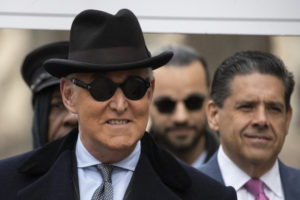
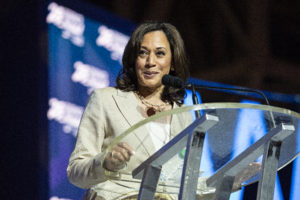
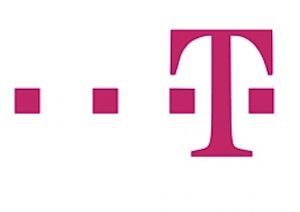
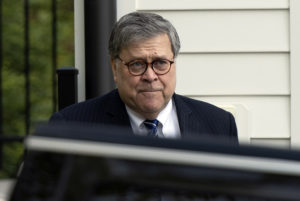
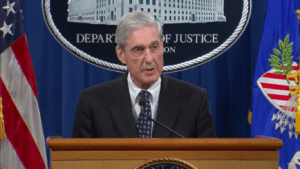


You need to be a supporter to comment.
There are currently no responses to this article.
Be the first to respond.